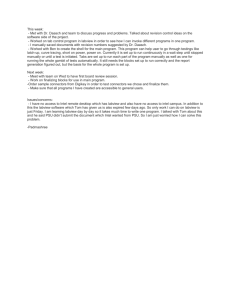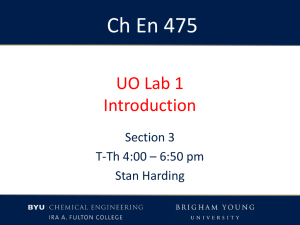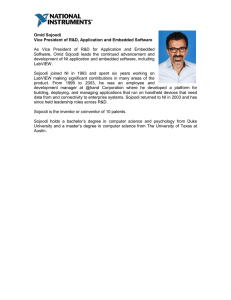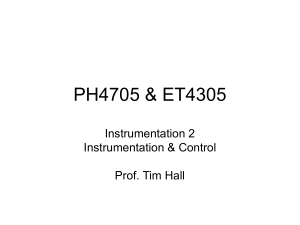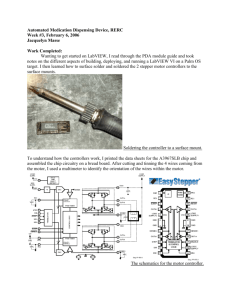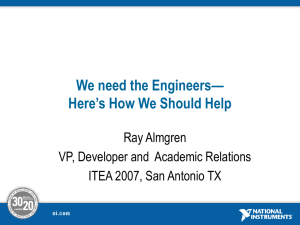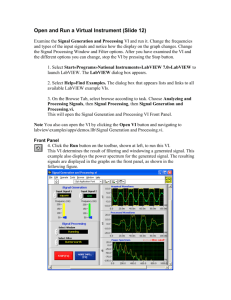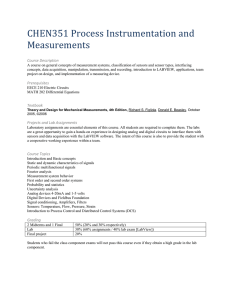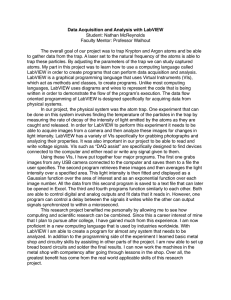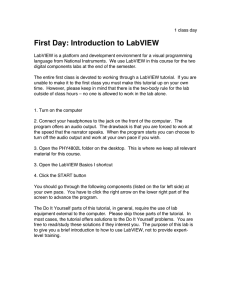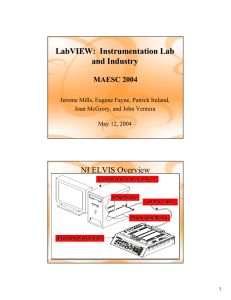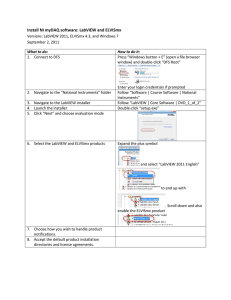06 EE 211 Lecture #9
advertisement
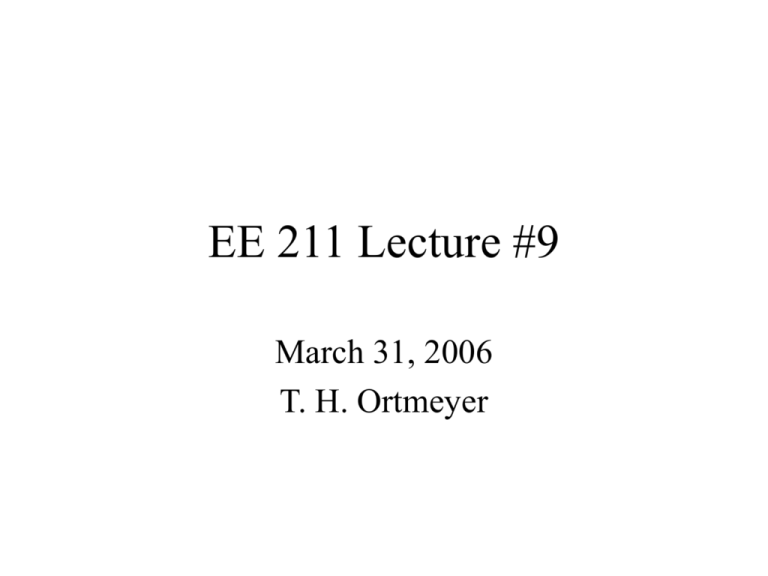
EE 211 Lecture #9 March 31, 2006 T. H. Ortmeyer WA #4 • Due Wednesday, April 5, by noon. • Hand in two copies. • You will be assigned to a group of three– you will read the other two reports, and provide comments to the report authors. • Mark your copy of the report, and fill out the grading rubric. Put your name on this copy, as your feedback will also be graded. WA #4 • They will be read your report, and provide feedback to you. • Bring the marked copies into lab Monday morning April 11. • Following this, revise your report. Your final report is due on Monday, April 17. Also hand in the two copies of your marked first draft. Put these in the box labeled “Written Reports” Topics • Sequential Logic– – Shift Register – Pseudo random number generator – Binary Counter • Each section has a Labview overview plus a lab component. • It will be helpful to review the Labview material before coming to lab. Labview Materials • These are in the folder “Sequential Logic” • The write-ups are in the pdf file “Fundamentals of Digital Electronics.” • The Labview vi’s are in the chapter LLB files. Chapter 4. D Latch • Run the Chap. 4 VI’s and complete the LabView challenge. 4 bit shift register Bounce Reset and Open 1 Set and Open 2 Anti-bounce Pseudo-Random numbers • Read Chapter 5 before lab • Complete the Ch. 5 VI’s in lab as instructed. • Construct the 4 bit PRNG and test it. JK Flip Flop/Binary Counter • Read Ch. 6 and run the VI’s Binary counter Important Notes • You will need to set up a 5v pulse train on the function generator. If you don’t remember how to do this, look it up. • We will also measure the delay of this circuit. Notes • This is a two period lab. Hand in the lab report at the end of the 2nd period. • It is best to work Parts 1 and 2 in the first lab period, and Part 3 (JK flip-flop) in the 2nd lab period.
